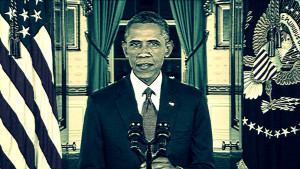[ by Charles Cameron — it’s precisely the unanticipated that blindsides us, no? ]
.

**
You know me, I’m very interested by the words “unanticipated” and “blindsided” — and I have the sort of mind that plays with words in the attempt to decode any “unanticipated” meanings they may hide. So for me, what follows is not an argument for or against Bill Kristol or Andrew Bacevich, nor a prescription for action or inaction against IS.
Here, then, is what strikes me as I read Kristol’s single sentence, as quoted by Bacevich, and it would strike me whoever’s sentence it was:
I don’t think there’s much in the way of unanticipated side effects that are going to be bad there.
What Mr Kristol doesn’t think will occur, he doesn’t anticipate will occur n– that'[s what the words mean. And I so might translate his words thus:
I don’t anticipate there’s much in the way of unanticipated side effects that are going to be bad there.
But aren’t unanticipated side effects precisely the ones that aren’t anticipated?
I get ye olde dragon eating its tail feeling.
**
I mean, there must be more going on, right?
One person’s unanticipated consequence is another’s predictable outcome..
In any case..
William Blake‘s paintings are very far from accurate by photographic standards, but he seems to have anticipated the human consequences of the “dark satanic mills” of the industrial revolution way ahead of bis contemporaries. Prophecy, in my view, is more a matter of warning of trends that porediction of future states of the system. Success in foresight is a matter precisely of attending to what’s unantipiated by others — because it’s in one of their blindspots.
Every driver on the road should know this!





